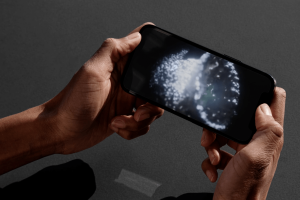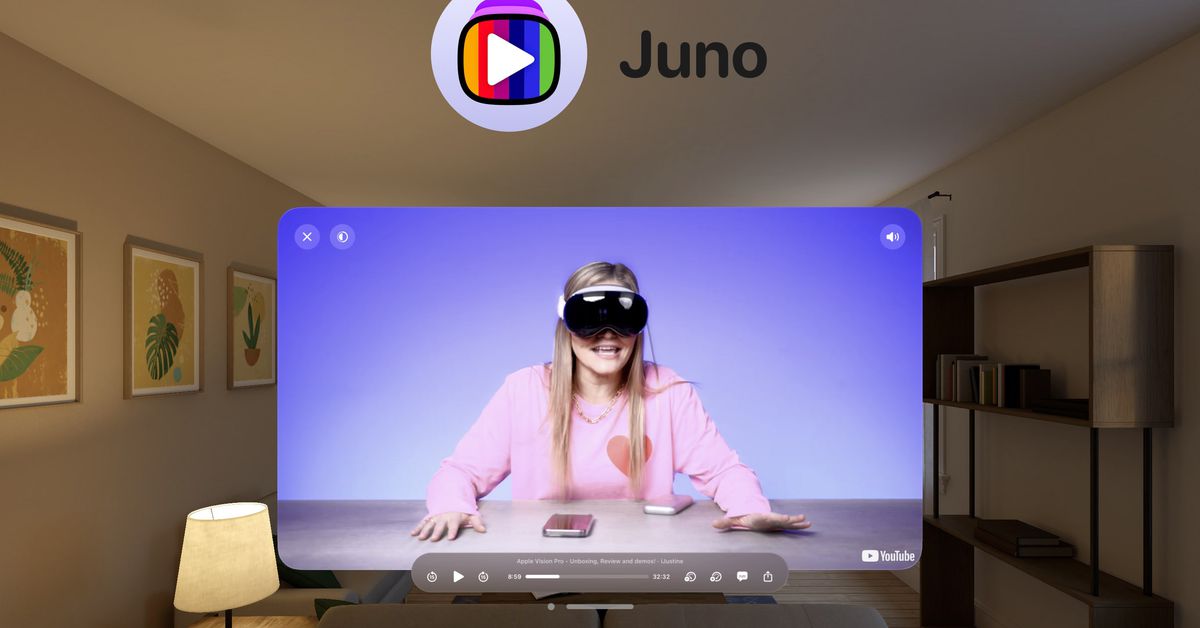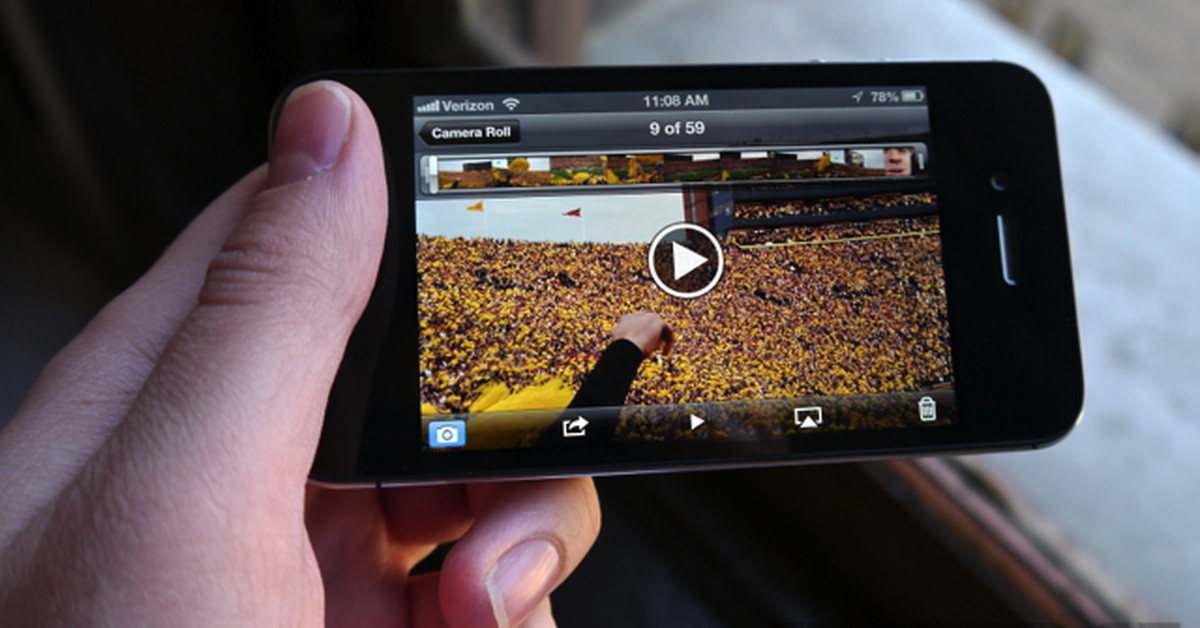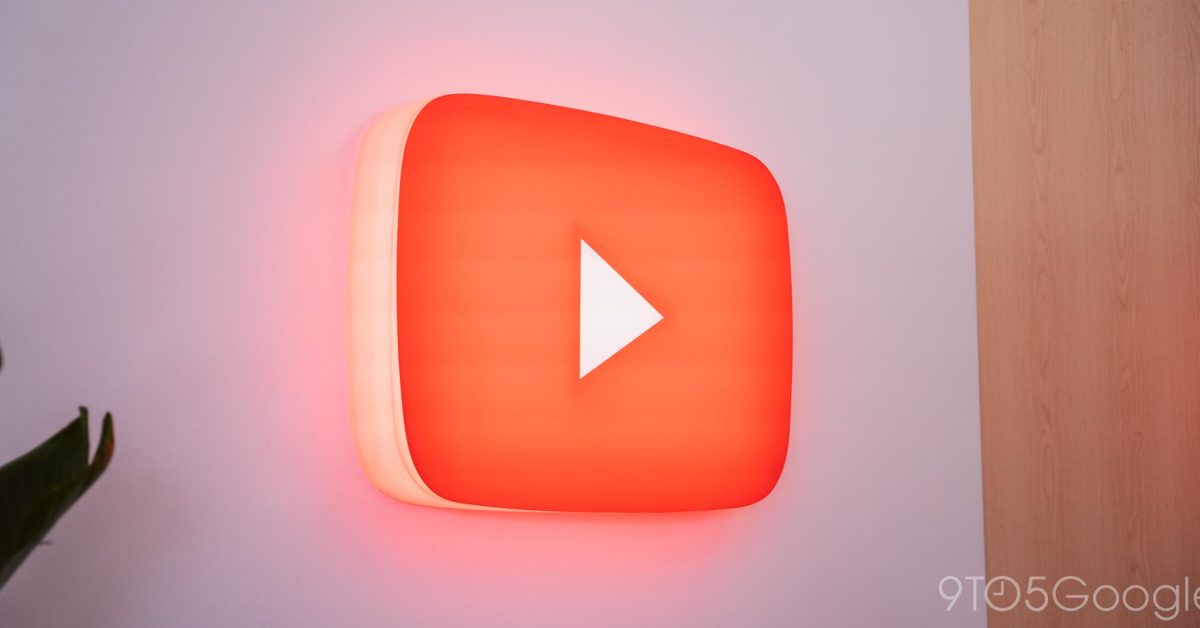Although it’s an unofficial third-party app, Juno supports most of the features you’d expect out of a native YouTube app. You can watch videos (obviously), scrub and skip through them using pinch gestures, and it’ll even respect the videos’ aspect ratios. Browsing YouTube’s catalog is also supported (though you can’t see video comments), and Juno is also set up to show YouTube ads to avoid making Google “grumpy,” Selig writes.
Juno delivers a fully native visionOS UI that taps into YouTube’s embed API, which is designed to allow videos to be embedded in external webpages. When you want to browse YouTube’s video catalog, Juno pulls up a tweaked version of the YouTube website. Apparently, the app is even clever enough to not show ads for YouTube Premium subscribers, though it remains to be seen how Google feels about a third-party developer being in control of an app for one of its biggest services on a new piece of hardware. Selig notes that he didn’t use any private/internal APIs to develop the app.
YouTube is one of a number of high profile services alongside Spotify and Netflix that isn’t offering a native app for Apple’s new $3,499 headset at launch. In YouTube’s case, Google’s official response has been to point users towards playback in Apple’s Safari browser instead, resulting in an inferior viewing experience. Apple has offered developers a way to make their existing iPad apps to the Vision Pro (there have been reports that Netflix’s app was accessible this way prior to the headset’s launch), but major developers including Google have opted against repurposing their apps this way.
“Does it feel like a perfectly native visionOS app?” Selig writes, “Well no, but it’s a heck of a lot nicer than the website, and to be fair Google apps normally do their own thing rather than use iOS system UI, so not sure we’ll ever fully see that.”










